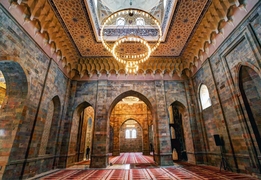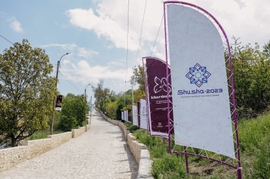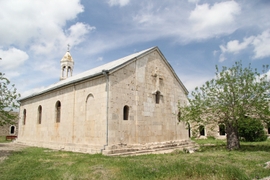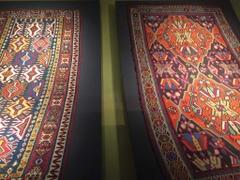Millions of Muslims across Azerbaijan, Kazakhstan, Iran, Turkmenistan, and Russia are fasting from sunrise until sunset during the holy month of Ramadan.
The word Ramadan is derived from the Arabic term ramida or ar-ramad, which means scorching heat or dryness. Muslims who observe the holy month abstain from eating, drinking, or smoking from sunrise until sunset. Ramadan lasts for 30 or 31 days based on the lunar Islamic calendar and sighting of the moon. During Ramadan, Muslims are expected to show more empathy and compassion towards the needs, sufferings, and misfortunes of others, while giving to charity is highly encouraged. The month is also considered the best time of the year for Muslims to seek mercy from Allah (the God) and engage in spiritual reflection.
The beginning of Ramadan falls on a different date every year, and some countries announce the start on different days, depending on the sighting of the moon. Some countries determine the first day of Ramadan through astronomical calculations, while for others, it starts when a new moon is fully and clearly seen. In some countries, Ramadan traditionally commences only with the testimonies of authoritative Muslim theologians.
Azerbaijan
For Muslims in Azerbaijan, which account for 97 percent of the constitutionally secular country’s population of over 10 million, Ramadan began on March 11 based on calculations of the Shamakhi astrophysical observatory. In Azerbaijan, the celebration of Ramadan is marked by a blend of traditional Islamic practices and local customs that reflect the country’s rich cultural heritage. During this holy month, Muslims engage in various religious activities, including spiritual cleansing and readings of the Quran in mosques. It’s common for mosques to also host iftar gatherings, bringing the community together to break their fast after sunset.
Throughout Ramadan, it’s customary for Azerbaijanis to prepare and share meals with neighbors, friends, and the needy, showcasing their generosity. Typical iftar meals might include dates, water, milk, and a variety of dishes such as dolma, plov, and govurma, each with its unique preparation and ingredients reflective of Azerbaijani cuisine. The spirit of Ramadan in Azerbaijan is also about strengthening bonds within the community, with people, especially the youth, visiting elder relatives and exchanging traditional Azerbaijani dishes and sweets.
Kazakhstan
For Muslims in Kazakhstan, who make up more than 70 percent of the population of over 18 million, the celebration of Ramadan is marked by spiritual renewal, purification, and a strong emphasis on charity and good deeds. The holy month involves fasting from dawn to dusk, with a focus on deepening spirituality and strengthening connections with the God. Special prayers and Quran readings are common in mosques throughout the month.
The Nur-Astana Mosque in the Kazakhstani capital of Astana; Central Mosque in Almaty; and Manjali Mosque in Atyrau are just three of the main locations where Muslims usually gather for iftar during Ramadan. Before the maghrib, or the sunset prayer, those fasting in Kazakhstan head to Ramadan street banquets, also known as “mercy restaurants” among locals, where food is served to all, but mainly to needy and poor people free of charge.
Turkmenistan
Ramadan celebrations in Turkmenistan reflect a unique blend of Islamic traditions shaped by the country’s historical and cultural backdrop. After decades under Communist rule, where practicing Islam was heavily restricted, there has been a gradual revival of Islamic practices in the country. Many Turkmen observe Ramadan by fasting and engaging in religious activities, emphasizing family affairs and the remembrance of Allah. Traditional iftar meals might include herb-filled pastries, cornmeal pancakes, and rice pilaf with dried fruits, reflecting local culinary customs.
Iran
During Ramadan in Iran, the Caspian region’s only non-secular Islamic country, Muslims engage in fasting from sunrise to sunset, focusing on spiritual activities such as reading the Quran, attending mosque prayers, and performing acts of charity. The fast is broken with a meal called iftar, where families often gather together. The streets and shops are adorned with colorful lights and decorations, creating a festive atmosphere. A common greeting during this time is “Ramadan Mubarak,” which means "Happy Ramadan." Traditional foods served during iftar include "ash," a thick lentil soup, and sweet pastries like Zulbia and Bamieh. Dates, particularly Mazafati or Bam dates, are also a staple at iftar tables.
Special prayers and rituals, such as the Ahya or vigil ceremonies, are held in mosques on the 19th and 23rd of Ramadan, commemorating significant events in Islamic history like the martyrdom of Imam Ali and the Night of Decree (Shab-e-Qadr), where Muslims believe the Quran was first revealed to the Prophet Mohammad. On Laylatul-Qadr, it is believed that all sins can be forgiven if one repents, and good deeds performed on this night are greatly rewarded.
Russia
With an estimated 25 million Muslims, Russia sees various local customs during Ramadan that foster tolerance and unity among its religious communities. Ramadan in Russia also features impromptu bazaars held in several cities, where various items such as Islamic books, prayer equipment, and perfumes are sold. These bazaars, typically organized by mosques at least once a week, are a hallmark of Ramadan, showcasing the vibrant Muslim culture.
The festival of reading the Quran is another significant tradition, where communities and more than 8,000 mosques across the country organize events for the recitation and memorization of the Quran. This is particularly popular given the long fasting hours in Russia, which can last about 17 hours, and serves not only to spiritually engage the community but also to deepen their connection with the Quran. Ramadan tents near mosques are a common sight, where people from various backgrounds come together to break their fast after sunset. Praying at restaurants after iftar is a practice observed by many Muslims in Russia, particularly among the Syrian community in Moscow. This reflects the blend of religious observance and social interaction that characterizes Ramadan in Russia.


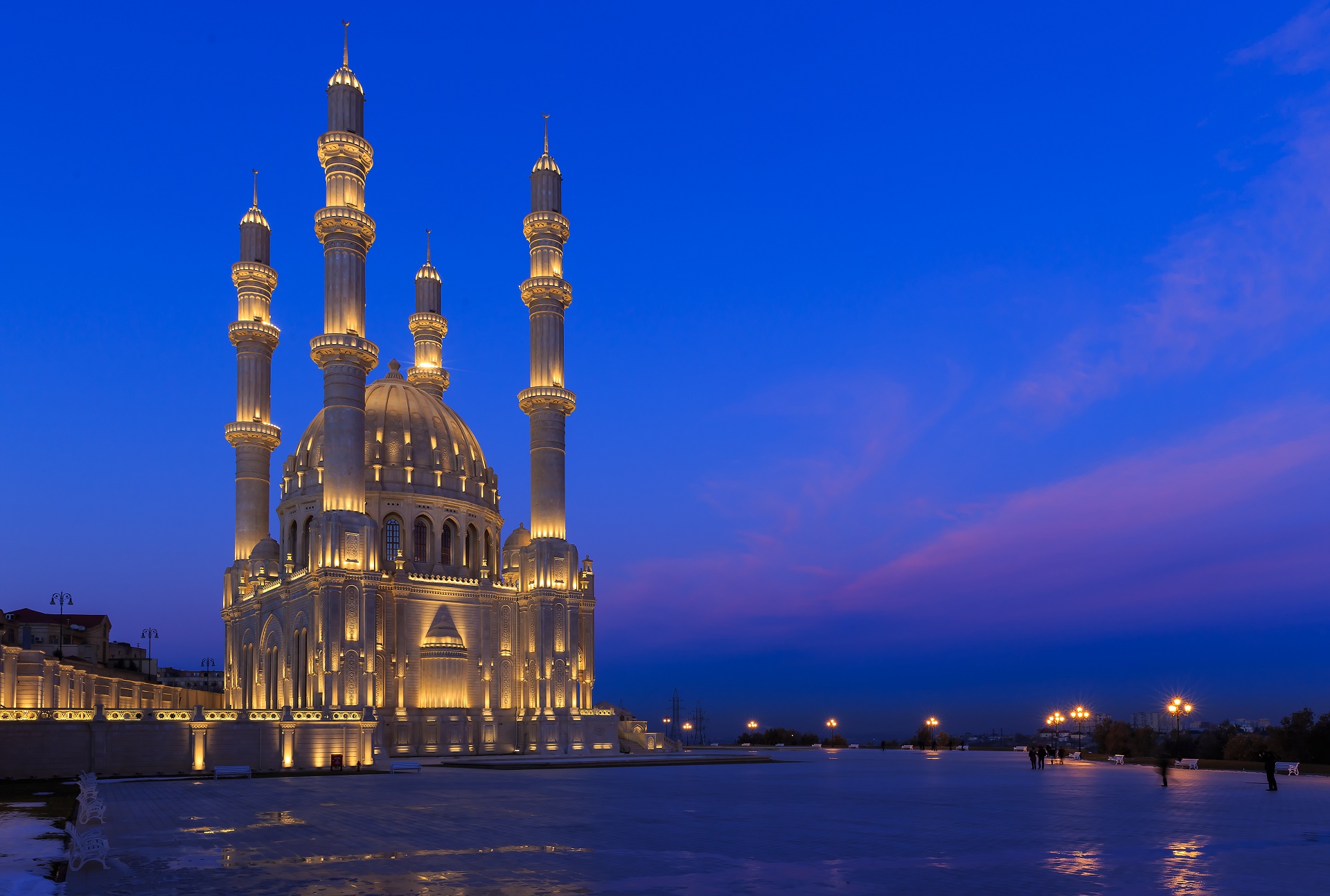




 President Ilham Aliyev shed light on the evolving contours of the peace process with Armenia during an international conference in Baku this week. ...
President Ilham Aliyev shed light on the evolving contours of the peace process with Armenia during an international conference in Baku this week. ...
 Azerbaijan and Armenia started the process of demarcation of their border on Tuesday, with the installation of the first border markers based on ge...
Azerbaijan and Armenia started the process of demarcation of their border on Tuesday, with the installation of the first border markers based on ge...
 Armenian sappers commenced on Monday mine-clearance operations in the territories adjacent to the Saint Mary Church in village of Voskepar (Armenia...
Armenian sappers commenced on Monday mine-clearance operations in the territories adjacent to the Saint Mary Church in village of Voskepar (Armenia...
 Iran and Pakistan have signed eight cooperation documents in various fields, and agreed to strengthen ties to fight terrorism in the region.
Iran and Pakistan have signed eight cooperation documents in various fields, and agreed to strengthen ties to fight terrorism in the region.
 As the conflict between Ukraine and Russia escalates, the strategic importance of Kharkiv, Ukraine's second-largest city, has come sharply into focus.
As the conflict between Ukraine and Russia escalates, the strategic importance of Kharkiv, Ukraine's second-largest city, has come sharply into focus.
 President Aliyev emphasized the critical role of the North-South Transport Corridor in fostering transport cooperation between Azerbaijan and Russi...
President Aliyev emphasized the critical role of the North-South Transport Corridor in fostering transport cooperation between Azerbaijan and Russi...
